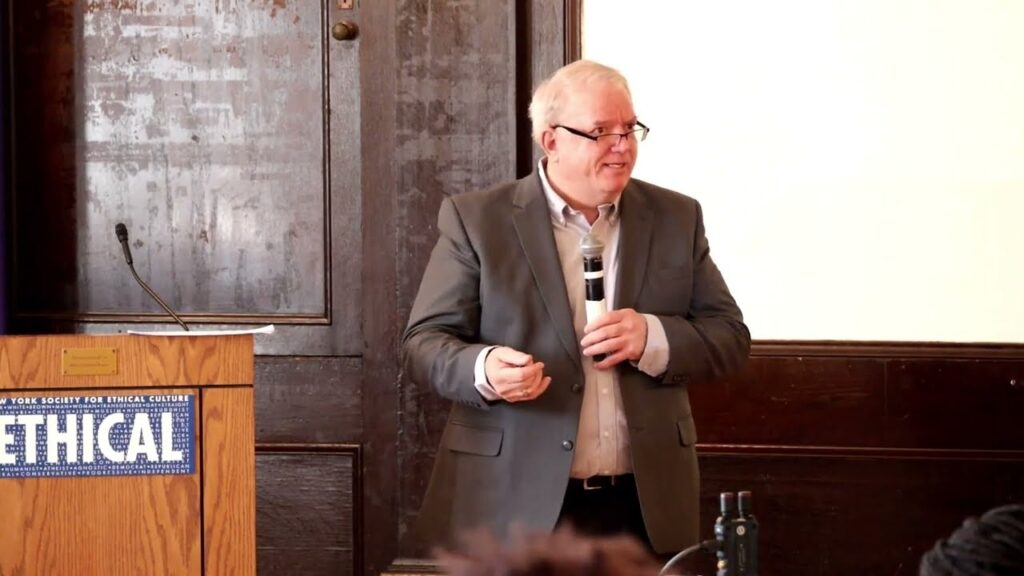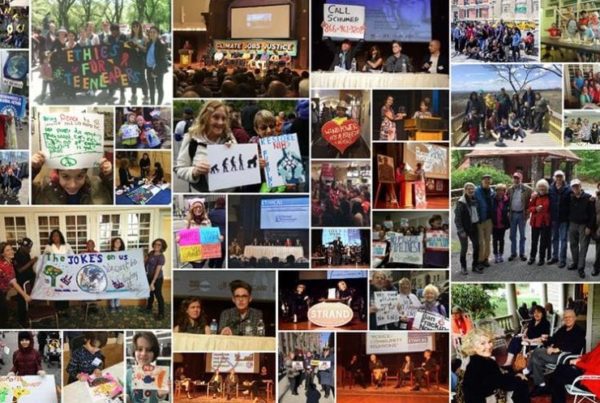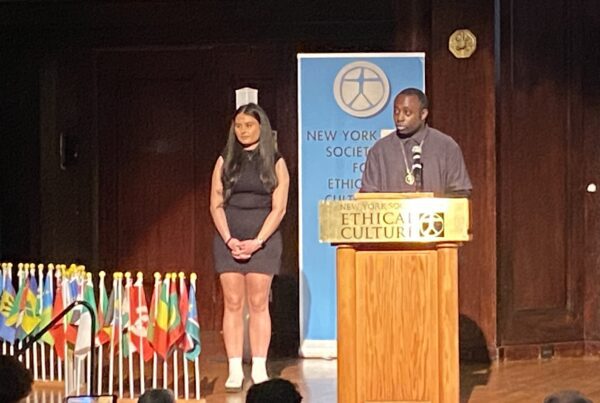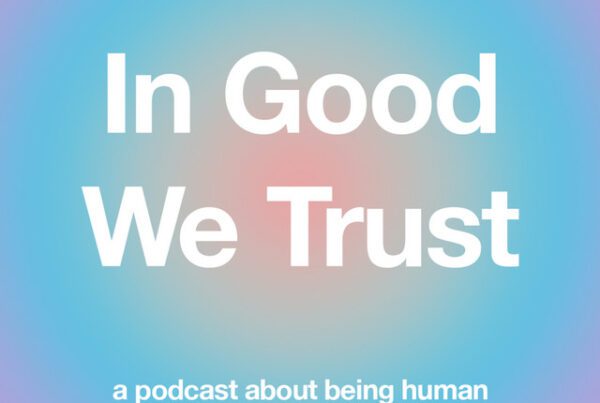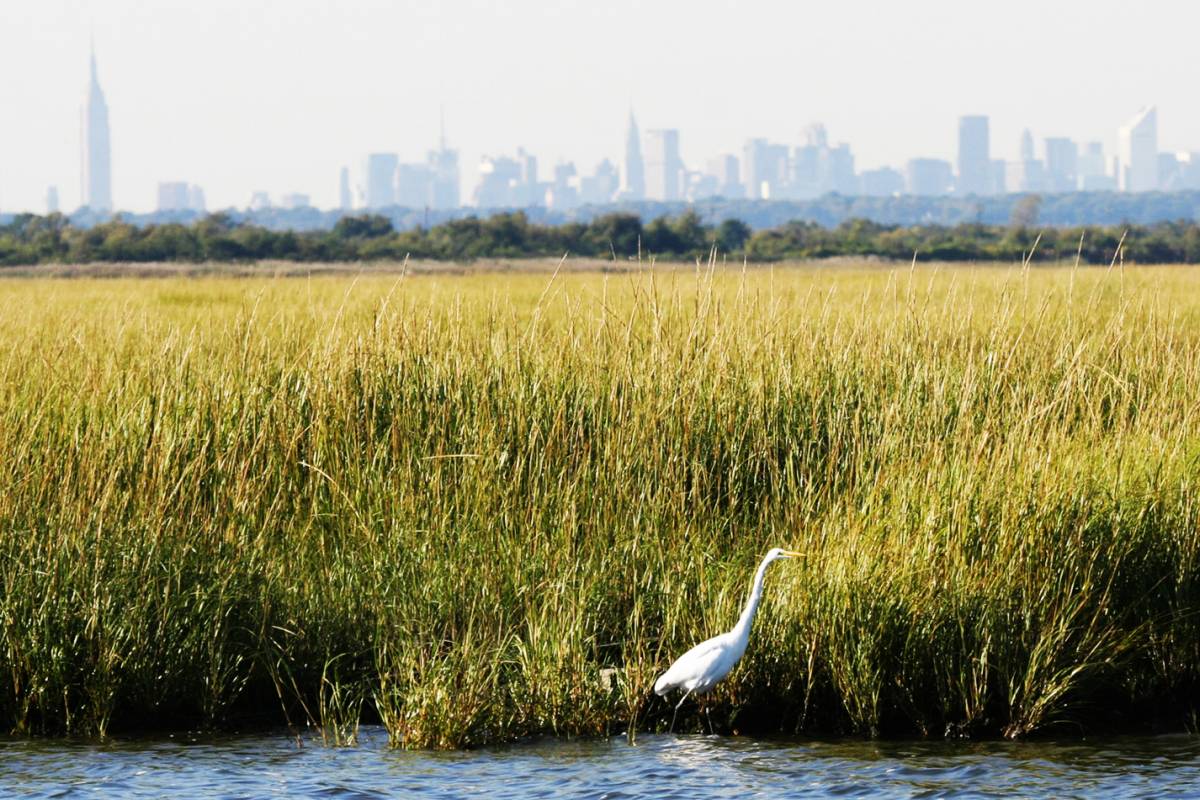
by Monica Weiss, Co-Chair, Ethical NYC Environmental Stewardship Committee
As a child, I was occasionally sent to my room for a time-out to reflect on whatever transgression I had committed — having done something thoughtless or selfish or just plain naughty. Although my parents were reasonable and patient, they had their rules and their limits. Before releasing me, they needed some assurance that I understood what I had done and why it was wrong. The message was “These are the rules we live by, and unacceptable behaviors have consequences.”
The laws of nature are like the rules of our parents. Those laws have evolved over 4.5 billion years, and we ignore them at our peril, just as ignoring the guidelines in handling the Covid-19 virus pandemic puts us in peril. We are in a big time-out.
In the ecosystem, everything in nature is interconnected with, and dependent upon, other things for survival—life supporting life. When things die, they decompose and provide food and energy for other things to grow. Nature restores and regenerates itself.
It is efficient, whereas our modern civilization, by contrast, is not. We provide energy by extracting fossilized material (coal, oil, and gas) from deep underground, burning it, and thereby spewing tons of carbon into the atmosphere, warming the planet and altering the earth’s systems, creating extreme weather—floods, droughts, catastrophic storms, along with fires, and deadly germs.
Industrial agriculture relies on toxic chemicals that strip the soil of nutrients and use vast amounts of water. Energy-intensive, it creates enormous pollution and waste. In contrast, organic, regenerative agriculture restores the nutrients by composting organic matter and alternating crops. It sequesters carbon naturally through plant roots, returning it to the soil.
Forty percent of the food we grow is wasted either before or after it gets to our plates. Organic waste that could be composted to grow nutrient-dense food ends up in landfills exuding methane, thereby increasing global warming. Consumerism has turned the planet into a big garbage dump. Our oceans are depositories for plastic and other harmful debris; its waters are acidifying from industrial fossil-fueled pollution; marine life is choking on our trash.
The atmosphere has warmed by more than 1º Celsius. CO2 in the atmosphere has gone from about 350 parts per million to over 410; the last time in the earth’s geological history that CO2 levels were that high there were no humans on earth. The past 15 years have been the hottest since recorded temperatures began in 1850.
The earth, much like humans with Covid-19, is burning up with fever; its immune system is compromised. With Covid-19, as with climate change, we did not heed the warnings. Human arrogance and denial prevented appropriate and timely response globally.
Thanks to science and medicine, we have managed to begin flattening the Covid curve in just six short weeks. We have marshalled our experts, shut down non-essential industry and commerce, and reimagined our priorities around survival and health, cooperation, and community. We need do the same to solve the climate crisis.
July 29, 2019 marked Earth Overshoot Day—the date on which we burned through the amount of resources our planet could renew in a year. Living sustainably means intentionally not using up the earth’s natural resources faster than nature can regenerate them. Continuing at our current rate of resource use, we’d need 1.75 planets to support our demand on Earth’s ecosystem.
Using this Time-Out Purposefully
So, what are we doing while shut in that will better prepare us to behave differently when we emerge? Are we learning some important lessons from this social and physical isolation, from losing people we love, from seeing food lines and empty supermarket shelves in a city where abundance and excess are the norm?
Are we noticing that the absence of human activity around the world is resulting in cleaner air and water, and animals returning to places humans have vacated? Are we reassessing what is necessary for our survival and our comfort? Are we considering how others are experiencing this pandemic in places where food, water and shelter are scarce to begin with?
If we have not taken a deep dive into these questions, we are not ready to come out yet. Einstein noted that doing the same thing again and again and expecting a different result is insanity.
Responsible environmental stewardship requires us to learn how to facilitate and support the regeneration of the earth’s ecosystems. Nature can do this if we get out of the way. We can see that happening in places where air travel and industrial pollution have come to a halt.
This might be our last chance to get it right. The climate clock is ticking. We have just under eight years left to transition our economy, energy systems, food production, and consumption habits to sustainable practices. Climate change solutions require the same kind of emergency response that we’re making to the Covid-19 pandemic. We must stop this march towards extinction by charting a new course in a way that reflects new priorities.
 Current Documentaries About Climate Change and The Environment (PBS Online)
Current Documentaries About Climate Change and The Environment (PBS Online)
(Image via the National Park Service)



